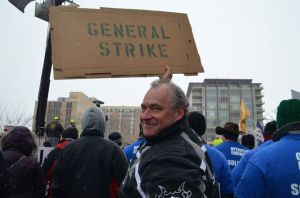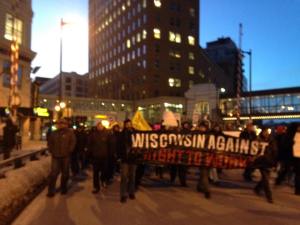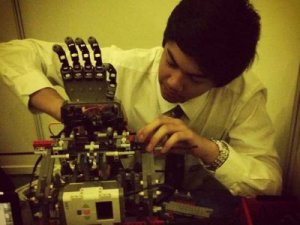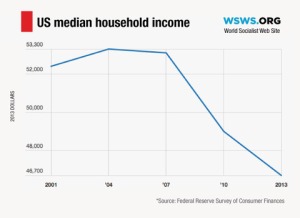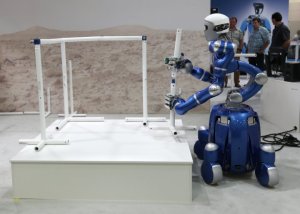Photo: Lane Hall
What’s Next for Labor?
By Dennis Boyer
Standing on the corner of State Street and the Capitol Square in Madison, my Electrical Workers sign in hand (the union of my father, uncles, and grandfather), waiting for the protest against the looming “Right to Work” legislation to begin—it gave me time to consider some questions that have been chafing my drawers since Wisconsin Act 10 destroyed public sector bargaining.
How did Wisconsin go from a vibrant and prosperous pro-union state to a hotbed of reactionary politics? What steps and directions might bring back workers’ organizations that can stand up to the destructive ideology of the current Republican Party? To fight the political cabal that uses the front of Tea Party grievances to advance a Corporate plan with its false promises of prosperity through gutting of education systems and human services and neglect of critical infrastructure? Are those gathered here ready to take the necessary steps to fight that agenda? I imagine that some of those here assembled may have voted for the very representatives now devoted to cutting union throats.
At the outset of this rant I must acknowledge that many of my observations and complaints are deep-seated—in the bones and DNA as it were of this offspring of CIO forbears. We can’t revisit every questionable road taken at the critical junctures of labor history, but every committed pro-labor person should know that history and consider the possibilities of different visions and outcomes. All of us should question leaders of all stripes and at all levels who say, “that’s just how things are, we’ve always done things this way”.
How did we get from the Wisconsin of Bob La Follette and Gaylord Nelson to the Wisconsin of Scott Walker and his mad scientist buddies the Koch brothers? To be sure, Wisconsin has always had a reactionary undercurrent of McCarthyite demagogues and corporatist flunkies willing to sell out our livelihoods, our communities, and our natural resources. But now we are at an altogether different stage. A stage where we are a laboratory for the worst ideas the reactionaries have to offer: infantile Ayn Rand individualism dressed up as policy, trickle down mythology justifying tax cuts for the wealthy, ramping up of evermore punitive policy toward the poor, corrupt privatization as way of enriching donors, and starving the public sector so it cannot function and will thus be discredited.
All this in the name of lower wages for the Wisconsin Manufacturers and Commerce crowd and the political ambitions of a delusional would-be President, Scott Walker. Make no mistake about, this is Class War and it is being waged on us. And we must acknowledge that we have lost some significant opening battles in that war.
“Our side” has to own its errors and omissions too. Labor and progressives were often complacent, resting on laurels instead reimagining the future and reinvigorating our organizations. We let ourselves become ripe for the very type of divide-and-conquer strategy that Walker peddled to his wealthy, union-hating donors. We didn’t do much as the Wisconsin establishment waged war on our largest city, gutted it, and incarcerated its non-white males in droves. Did labor organizations truly prioritize the notion of workers’ solidarity across the board? Or did they let their members’ instincts that it’s OK to close a park or lay off a teacher if it means a $5 dollar reduction in taxes go unchallenged? Did union leaders work to build democratic movement-style organizations or come to rely on an insurance industry model where they collected premiums and adjusted claims?
Well enough blame game. There are many things that could have been done differently if we could go back to 2010 (or 1980 or 1948). I have been asked many times since the dropping of the Act 10 Bomb on public employees what might have been done differently at that time. Many thousands of union members and supporters ringed the Capitol and raised their voices. I spent many hours there and it felt good and hopeful. Then it was over. We didn’t raise the political costs to the level sufficient to give our enemies (yes, in a war there are enemies) pause. As I left the last Wisconsin Uprising rally of that round, I wondered, why did electric power continue to state buildings during that time (same with the steam heat or air conditioning) and why did school sessions continue and buses roll? It seemed like a major battle had raged and our side had held back.
It seems to me, when faced with an existential crisis, that the full array of tactics, measures, and bold acts must be considered, and, after due consideration, be deployed incrementally or simultaneously as resources and circumstances dictate. That they were not tells me something about the lack of preparedness among labor leaders and their members.
The unwillingness and inability of labor to bring off a General Strike is a serious deficit in our toolkit. But the Capitol occupation during the Wisconsin Uprising provided sufficient breathing space to train tens of thousands of supporters in the nonviolent civil disobedience that would had made it difficult if not impossible to do legislative business. There was room to organize all manner of slow-downs, sit-downs, and gumming up of the public sector. Even after the passage of Act 10 there could have been an ongoing campaign of guerrilla labor action behind management’s lines. This is the era of asymmetrical warfare, of hacking, of fragile networks of communication. Business as usual can be disrupted.
I would hope that those within labor would revisit their organizational models and consider whether they are suitable to the task demanded of defending workers in the Class War. In many cases they are not and that must be dealt with. Here are some items I would like Wisconsin labor to consider:
- An intensive effort to build a non-worksite specific workers organization that all working people can join (somewhat on the Working America model, but with an assertive action perspective)
- Train working people and supporters in the full-range of direct action tactics and techniques
- Open up to more versatile political action methods less dependent on the two-party model and more reliant on coalitions of mobilized citizens
- Bring labor organizations up to a state of readiness sufficient to make them credible as direct action organizations
- Build and deepen support and logistics networks capable of providing assistance to workers under attack or threat (food, medical, shelter, legal representation, transportation)
- Create (hold on to your hat) a workers’ militia defense force to protect workers and communities under attack
Some would say this an unrealistic—even dangerous—agenda. I say there are dangers in not even discussing it, in letting our enemies know we won’t even consider it. Were most of the people at the anti-Right to Work protest on the same page with me? Probably not. But we must at least have the conversation before their unions are snuffed out like candles.
Those who know their Civil War history know that things did not go well for the Union forces—the United States—in the first several years of that conflict. They sustained a number of thumpings on the battlefield and domestic politics proved contentious and chaotic. Wars have their lost battles, retreats, and regroupings. We must struggle, like President Lincoln did, to find the moral clarity in our cause and the leaders willing to pursue that cause. Otherwise we’re just waiting for the Walkers and their ilk to mop up our pockets of resistance.
–Dennis Boyer
The author of this opinion piece is a retired AFSCME staff member and in a prior life was a member of Cream City Lodge #75, Brotherhood of Railway Carmen. He was a founder of the Wisconsin Labor-Farm Party and later a convener of the Wisconsin Greens.

